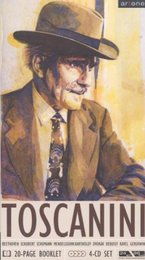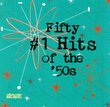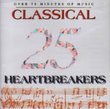| All Artists: Arturo Toscanini Title: Arturo Toscanini Members Wishing: 0 Total Copies: 0 Label: Artone Original Release Date: 1/1/2006 Re-Release Date: 4/27/2006 Album Type: Box set, Import, Limited Edition Genre: Classical Style: Number of Discs: 4 SwapaCD Credits: 4 UPC: 4011222223272 |
Search - Arturo Toscanini :: Arturo Toscanini
 | Arturo Toscanini Arturo Toscanini Genre: Classical
|
Larger Image |
CD DetailsSimilar CDs
|
CD ReviewsToscanini's art well exemplified Steven A. Peterson | Hershey, PA (Born in Kewanee, IL) | 11/27/2008 (5 out of 5 stars) "This 4 CD set features Arturo Toscanini and the NBC Symphony Orchestra in music recorded from 1930 to 1953, just prior to his retirement at 87 years of age. Some confession at the outset. My first full set of the 9 symphonies of Beethoven was the Toscanini NBC Symphony Orchestra version. I have continued to purchase and enjoy his recordings over the years. He is one of my favorite conductors, so I begin this review with considerable bias. Despite that, I think that this is a wonderful introduction to his body of work--whether one is critical of him or not.
He was hard on his orchestras. As I recall, he would use terms such as pagliacci (clowns), asino (guess), stupido (guess) during rehearsals. This set begins with Toscanini's self-description: "There are two Toscaninis: one is the autocrat where music is concerned, the other is a democrat." But, ultimately, it is the music that should concern us. Given the age of the music and the poorer recording technology, this music cannot compare sonically to what we hear today. Nonetheless, the sound is pretty clean and I find it satisfying given the recording technology of the times. Across the 4 CDs, there is music of Beethoven (Symphonies 3 and 5), Schubert (Symphony # 9), Schumann (Symphony # 3), Mendelssohn (Symphony # 5), Dvorak (# 9, "The New World"), plus Debussy, Ravel, and Gershwin pieces. Let me give just a few illustrations (to go over every piece would produce a 1,500 word review!). Beethoven's 3rd Symphony. Was it Haydn who said of this piece that "After today, everything is different" (or something to that effect)? One can understand why. This is a recording nearly 70 years ago (1939), but it still sounds pretty good for all that. The sound is a bit cramped but the clarity of the orchestra's playing is pretty good. The first movement is played at an animated pace, representing pretty well Beethoven's "allegro con brio." The second movement, "Marcia funebre," has the somberness of funeral music. Indeed, it is played "adagio," in a stately fashion. The ending is elegiac. The scherzo (3rd movement) is rather brief compared with the other movements, but it is a treasure. It begins at a quick pace and "gets the juices going" for the listener. This is crisply played by the orchestra and the movement closes out with a nicely done crescendo. The 4th movement begins at a very quick pace (allegro molto). The sound is a bit "dry," but given the age of the recording that is scarcely surprising. The close, for me, is riveting. Dvorak's Symphony # 9 ("The New World"). The first movement begins crisply; the first crescendo and the crashing tympani are most effective in this performance. The conductor and orchestra do nicely here. The second movement, "Largo," features variations on "Going Home." There are some dramatic contrasts in dynamics in volume and texture. Halfway through, the sound gets a little shrill, but that may be a function of recording technology. The third movement begins "molto vivace" indeed! There is spirited conducting/playing. Tympani set the stage at the outset with a dramatic sound. The movement has a pulsating feel to it. Finally, the fourth movement. Back in the day, a wonderful friend of mine referred to the beginning of this as "Aragorn's Theme," referring to a key character in Tolkien's "Lord of the Rings." And I have always thought that she was dead right. Wouldn't this be a great theme for his appearance on screen? There is heroic music heroically played in this movement. The horns pick up the theme at the outset and the movement grows from there. One of the more interesting versions that I have heard. Some bon-bons. Gershwin's "American in Paris." I really hadn't heard too much of this kind of music from Toscanini, but he and the orchestra do a fine job with this. There is very cleanly played music with a crisp pace. The piece ends rousingly. Another interesting take is Debussy's "Prelude a l'apres midi d'un faune." A clean and lush sound, despite the recording's age (1953). A fine version. Again, there is a lot of age to these works. But, even now, I appreciate the work of Arturo Toscanini and the NBC Symphony Orchestra. My final judgment: if you already like the conductor and orchestra, you'll enjoy this. If you are not so familiar and would like a taste of this team, then this is a relatively inexpensive entree to quite a range of music. " |

 Track Listings (10) - Disc #1
Track Listings (10) - Disc #1

